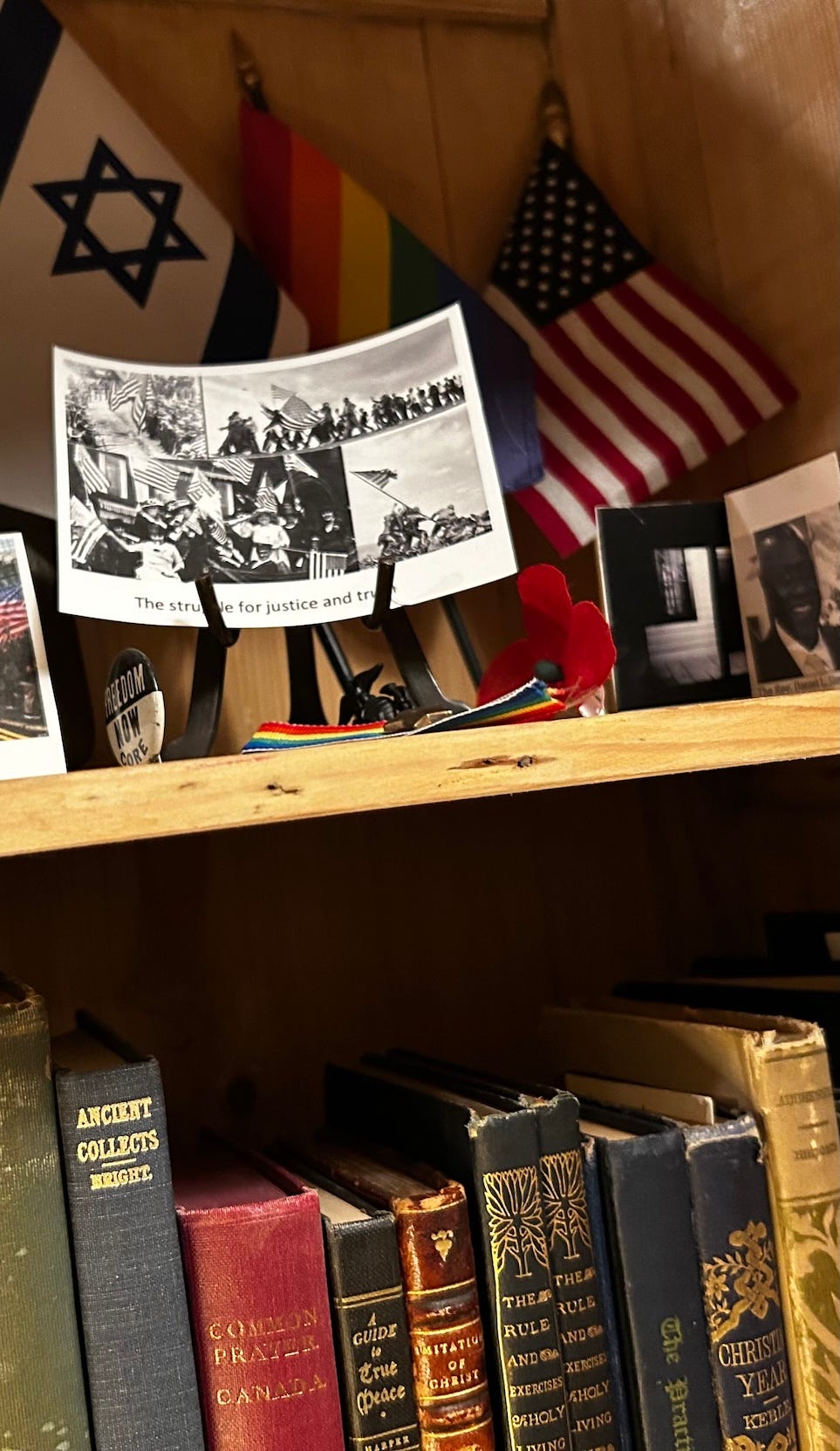They don’t have political culture
Established the new covenant of reconciliation (in the collect for the Second Sunday of Easter)
There are nations … which are too politicized, but they don’t have political culture. -Pope Francis, 2016
That’s from an article in the New York Times by John Jeremiah Sullivan, “What the Pope Told Me About Politics.” He tells a few stories about covering Pope Francis on a trip in 2016. It was only a month before the American election. He admits, sort of, that he was trying to get a sound bite from the Pope that would place a finger on the scales of the election. “I remember that he smiled, as if to say, ‘I see what you’re doing.’ And he was right. My question was a setup.” Francis didn’t fall for it. He first offered a bit of the standard Christian stance about informing and obeying your conscience.
Francis continued, “There are nations, and I’m thinking of Latin America, which are too politicized, but they don’t have political culture.” The reporter asked himself, “What did he mean by this, by political culture?” Francis saw it as part of the Church’s role to encourage nations to have, or develop, a political culture. “People are from this party or that one,” he said, but “effectively without a clear thought on the foundations, the proposals.”
That’s not a vague call to unity. It’s not asking ideological opponents to set aside their differences. In American terms it would translate into “read the Declaration of Independence, read the Constitution, understand the intentions of your Founders.” For the pope “political culture” offered something more worthy and enduring around which adversaries might act with a bit of humility. And the pope certainly knew, that in many nations, the political culture had been strongly influenced by Christian values.
In the readings of this Second Sunday of Easter we hear “But Peter and the apostles answered, "We must obey God rather than any human authority.” True enough. When a General Convention found itself stuck many years ago over the issue of civil disobedience that Martin Luther King had confronted them with, it was the most conservative Anglo-Catholic caucus that broke open the discussion by reminding the delegates of Peter's words. In almost all times we are to obey the law and promote change through the law. And on rare occasions, we might serve the law, and the best of our political culture by breaking the law and accepting the consequences of our actions.
All nations need stability and change. The political culture is part of that stability. The American political culture also assumes the necessity of adaptation and change. We are wise to draw on that. We've been going through decades in which the far left and the far right have caused many to devalue the American political culture.
Some are coming to understand that in the current moment, we need to hear less about how “God is on our side” or we are “on the right side of history” and more about "all men are created equal," "unalienable rights," "Life, Liberty, and the Pursuit of Happiness," and "That to secure these rights, Governments are instituted among Men," Also, "We the People of the United States, in Order to form a more perfect Union, establish Justice, insure domestic Tranquility, provide for the common defence, promote the general Welfare, and secure the Blessings of Liberty to ourselves and our Posterity, do ordain and establish this Constitution for the United States of America."
This abides.
Brother Robert, OA






When I went to law school in 1998, I had a law school professor who told us, “The first thing you have to understand is that it (the U.S. legal process) is not about fairness.” I didn’t believe him. I bought the line that, while one person may not be able to make big changes, they can make small ones. But those days are gone. Every one of the three branches of U.S. government, at every level, set out by the Constitution has been perverted and poisoned to such an extent that it is effectively anything but what it was meant to be. Every method and process developed to achieve or maintain the ideals is utterly broken. But … and this matters … the ideas and ideals remain and one day, perhaps after great suffering, we may find a way to apply them and use them in all new ways that allow them to breathe and grow as they were intended to do. But the old way may have to collapse entirely before that occurs. Or, perhaps, the Second Coming and the real kingdom.